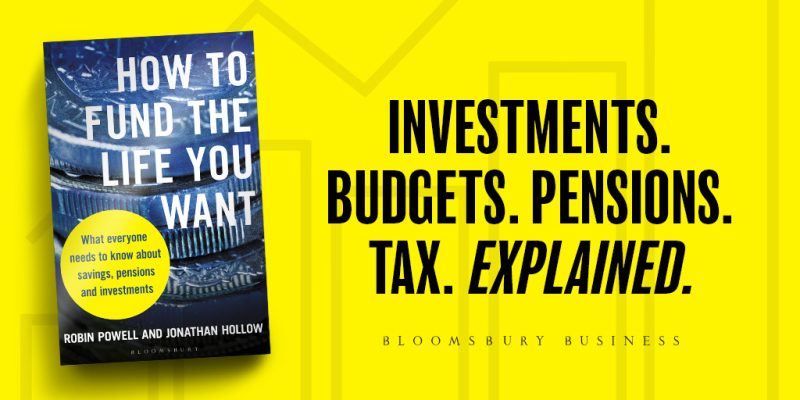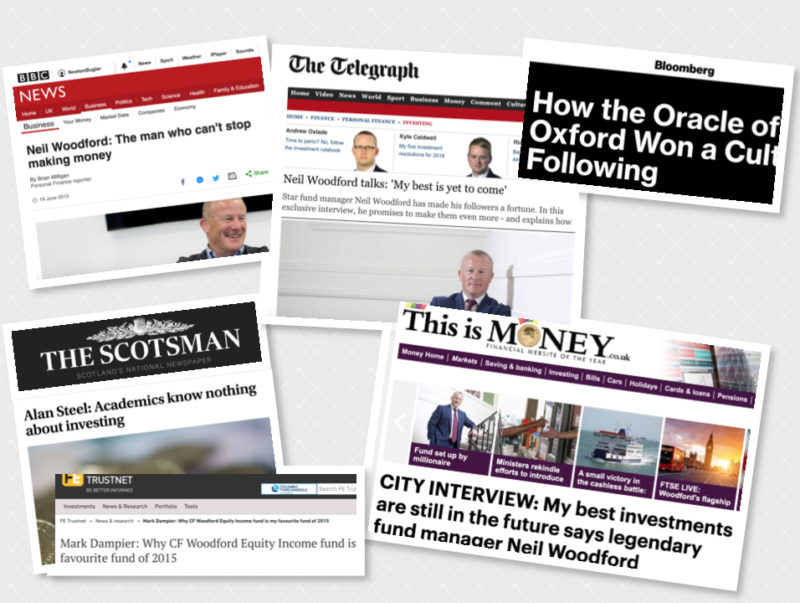Eight tips for finding a suitable adviser
Comments Off on Eight tips for finding a suitable adviser
By ROBIN POWELL
Financial advisers have had a bad press in recent years, and I can understand why. But my firm belief is that having a good adviser to help you plan your financial future and who can turn to when you need them is hugely valuable. So how do you go about finding a suitable adviser?
In a new book, released this week, the journalist and broadcaster Paul Lewis provides some useful pointers on this subject, and explains some of the pitfalls. The book is called Money Box, after his weekly programme on BBC Radio 4.
Before we look at Lewis’s recommendations for finding a financial adviser, we should define what we mean by financial advice. It’s a really important point to understand.
There are, in fact, many different types of adviser, with a wide variety of service offerings and areas of expertise. There are, for example, financial planners, and we’ll discuss those in more detail later; increasingly, there are also financial educators, coaches and mentors.
The key thing to remember is that if you want advice about specific investments, or if you want someone to manage your money for you, you need a regulated financial adviser. Most financial coaches and mentors are not regulated to offer advice, which means that, if they do offer advice and you decide to act on it, you aren’t protected if things go wrong.
With that explanation out of the way, here’s Paul Lewis’s guide to finding a suitable adviser to work with.
Tip 1: Decide if you actually need advice
Not everyone needs financial advice. It is perfectly possible, for example, to manage your own investments. Indeed, for young people or those with small amounts to invest, that may be the best option. There is free advice available from a government-funded resource called MoneyHelper. Its website, https://www.moneyhelper.org.uk, provides helpful and reliable information on a whole range of money-related issues. If you have a question specifically about pensions, MoneyHelper also offers a service called Pension Wise, which has its own helpline.
Tip 2: Don’t get advice off social media
There are some very good financial educators online. Sadly, though, they are far outnumbered by the bad ones, and distinguishing between the two can be tricky. You should therefore never choose an investment on the advice of an online influencer. Using social media to research investments, says Lewis, “is like fish researching the world above the water by sampling the food fishermen throw in.” His other golden rule is never to respond to an advert on Google; these begin with “Ad” in bold before the URL.
Tip 3: Only use an adviser who is FCA-regulated
Anyone can call themselves a financial adviser, but as we’ve already explained, they need to be regulated by, and registered with, the Financial Conduct Authority to advise on specific investments. You should never buy investments from people who aren’t registered with the FCA, however they describe themselves. Paul Lewis writes: “All these people are allowed to operate unregulated as long as they only sell unregulated investments in things like whisky, property or art. Your money is completely at risk.”
Tip 4: Only use an adviser who is truly independent
Under FCA rules, there are two sorts of financial advisers. The sort you want are called “independent”. This means that they have to look across the whole market for investment products before recommending a specific one. What you need to avoid are the second type of adviser, namely “restricted” advisers, who are tied to recommending products from a particular firm, or sometimes from a panel of firms. The problem is that restricted advisers generally avoid using that term, and many deliberately give a false impression that they are in fact independent. So be on your guard.
Tip 5: Only use a chartered or certified financial planner
There are around 33,000 regulated independent financial advisers in the UK. But only around 6000 of those are genuine financial planners. This is a crucial distinction. Proper financial planning offers far more value than financial advice alone. “The very best qualified financial advisers are chartered or certified financial planners,” writes Lewis. “They have put a lot of effort into being the good guys, and the chances of a bad guy or gal remaining in there is small.”
Tip 6: Insist on paying in pounds, not percentages
Another filter that Paul Lewis recommends you apply when choosing an adviser is to pick one who charges you in pounds. “Many advisers,” he writes, “will want to charge you a percentage of your money. Charging a percentage is like taxing your wealth. Drip, drip, every year some of your wealth becomes theirs.” The answer, he says, is to pay a specific, fixed amount, whether it’s for a one-off service or for ongoing help and advice.
Tip 7: Consult online directories — but exercise caution
There are several online directories designed for those who want help finding a financial adviser. Some directories are better than others. Advisers may pay to be listed, and, in the past, they could pay for higher positions. That should not happen now, but it’s something you should be aware of. There are three directories which Lewis recommends using to draw up a shortlist. The first is AdviserBook, which he suggests as your starting-point; the second is Unbiased, the oldest directory, which lists more than 18,000 advisers; and the third is a newer database called VouchedFor.
Tip 8: Disregard firms without a good website
Once you have a shortlist, Paul Lewis recommends that you carefully check each firm’s online presence, and discount any firm that either doesn’t have a website or whose site doesn’t provide the information you need. “Ignore the slick sales patter, which usually reads as though it is generated by a PR machine,” he writes. “The key question is: does it tell you what they charge?” If a site doesn’t give specific figures, “your first question when you meet them should be about charges and costs. If the answer is anything but clear, that is a warning flag.”
Filter, filter, filter
In summary, finding a suitable adviser you can really trust is a minefield. Even if you follow all eight of these rules when choosing an adviser, there is no guarantee that you’ll be entirely happy with the choice you make.
The key, says Paul Lewis, is to apply appropriate filters. Are they regulated by the FCA? Are they truly independent? Are they chartered or certified financial planners? Are they totally transparent about how much you’ll have to pay? And do they charge fixed fees, in pounds, rather than percentages?
Choose a firm that ticks all of those boxes and you should be all right.
Money Box by Paul Lewis is published by Penguin Books.
NEED MORE HELP?
If you need more help finding a suitable adviser, you’ll find this website useful.
Remember, too, that here at TEBI provide a service called find An Adviser.
Wherever you are in the world, we will try to put you in contact with an adviser in your area whom we know personally, who shares our evidence-based investment philosophy and who we feel is best able to help you. If we don’t know of anyone suitable we will tell you.
We’re charging advisers a small fee for each successful referral, which will help to fund future content.
Click here and let’s get started.
PREVIOUSLY ON TEBIEight tips for finding a suitable adviser
Five things that stop people becoming wealthy
Young investors are smarter than you think
Investors, here’s why you need an plan
Horizon risk: what is it, and how can it be mitigated?
Regulators don’t understand financial advice
© The Evidence-Based Investor MMXXIII



